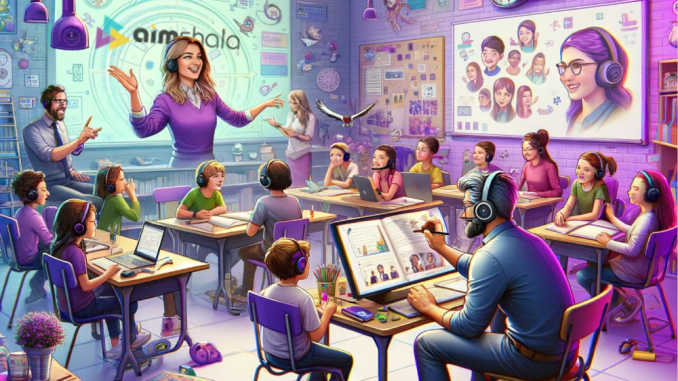
Experiential Learning makes hands-on experiences its emphasis. Also, the real world applications and active engagement in course work that are carried out via experiential learning can mean new ways of learning natural sciences and social science during field trips and out west. Experiential loot american 2011 Unlike traditional classroom-based instructional models, experiential learning encourages students to learn by doing, thinking reflectively, and applying what they have learned in authentic context. The article delves into the benefits of experiential learning and its transformational impact on students. It argues that experiential learning can be a humanizing process,one which is so crucial to good training learners of English as a Second Language.
-
Enhanced Engagement And Motivation
Experiential learning gives students a sense of engagement and satisfaction because what they are learning is relevant, meaningful and interesting. Through experiments, role-playing, field trips, and other experiential methods used as the alchemy of instruction itself, students are actively involved in learning. This stir assesses curiosity triggers interest and encourages natural motivation for learning. By linking learning to real world problems and people’s everyday works experien The attention of the student becomes attached; he feels some ownership over his educational journey. As a result, students are more likely to retain the information they have learned and gain deeper insight into various concepts. They can also be expected to remain in tune with what is happening around them and to stay on their studies without losing much time for other things.
-
Application Of Knowledge And Skills
Experiential learning enables students to apply their knowledge and skills in authentic contexts opera-ting as a bridge between theory and practice. Through hands-on activities, projects, internships, and community-based initiatives, students can see first-hand how the concepts and theories they have learned in the classroom apply and function in daily life settings. This application-oriented approach not only reinforces learning, but also sharpens students’ abilities to proble-matize things critically and creatively. In addition, by grappling with real-world cha Langes and difficulties, students develop resilience, adaptability and growing confidence about navigating unfamiliar environments
-
21st-Century Skill Development
In experiential learning the best cultivation of a wide range of 21st century skills, skills that are vital for success in the fast-changing world of today. Through collaborative projects, teamwork, and interdisciplinary activities, students learn how to communicate effectively, collaborate with others, and get different perspectives from all kinds of people, who may share what they have seen about a complex problem situation. Moreover, experiential learning nurtures creativity, innovation and entrepreneurial thinking by encouraging students to test, explore. Students also become digitally literate. They understand how to get information on a computer quickly and efficiently and can use multimedia productions. Today’s students also need Web search skills information retrieval skills (their own research), filtering skills, critical evaluation and management of Internet sources as well as the ability to create their own online resources.
-
Personal Growt and Development
Experiential learning challenges students to get out of their comfort zones, take on new roles and responsibilities, and confront the unknown. Through experiential learning students get self-awareness, self-confidence, self-efficacy, overcoming obstacles by trial and error–as well as celebrate their successes when they achieve. Moreover, experiential learning fosters empathy, cross-cultural sensitivity, and international understanding by exposing students to other points of view and life experiences from around the world. Conditions that promote reflection on life meaning are also necessary for experiential learning.
-
Preparing for the Future
Experiential learning helps students get ready for college, careers, and life beyond by giving them the knowledge, skills, and outlooks it take to keep one’s head up in an era of rapid change. By doing real-world projects, internships and cooperative studies, students get some needed practical experience, build professional networks, and achieve career readiness. Experiential learning also makes people more able to adapt, and enduringly maintains habits of learning that are essential for navigating through unpredictable, complex environments. As a result, participants in experiential programs go to college better prepared than students who have less experience with any such approaches; they take care about finding work that needs doing in society and be productive citizens of their communities. In brief Experiential learning transforms education far beyond what a classroom can provide. It equips students with practical experience, applications in real life, and opportunities for personal and professional growth. By promoting a better quality of engagement and motivation, requiring the application knowledge and skills and building 21st century capabilities, experiential learning promotes success in college as well as on into careers. In gettin’ all stretched out and moved beyind their comfortable limits, students fy up a bit inside themselves too. Nowadays as experiential learning is embraced by educators, it releases the full potential of students and makes them lifelong learners, critical thinkers, and active contributors to society.

Leave a Reply